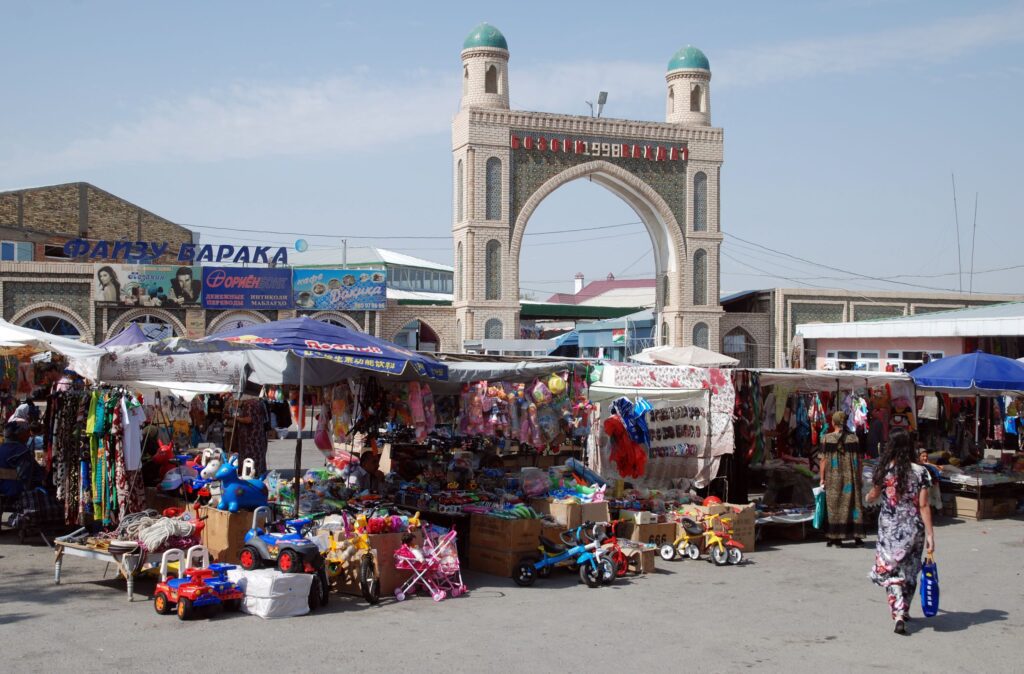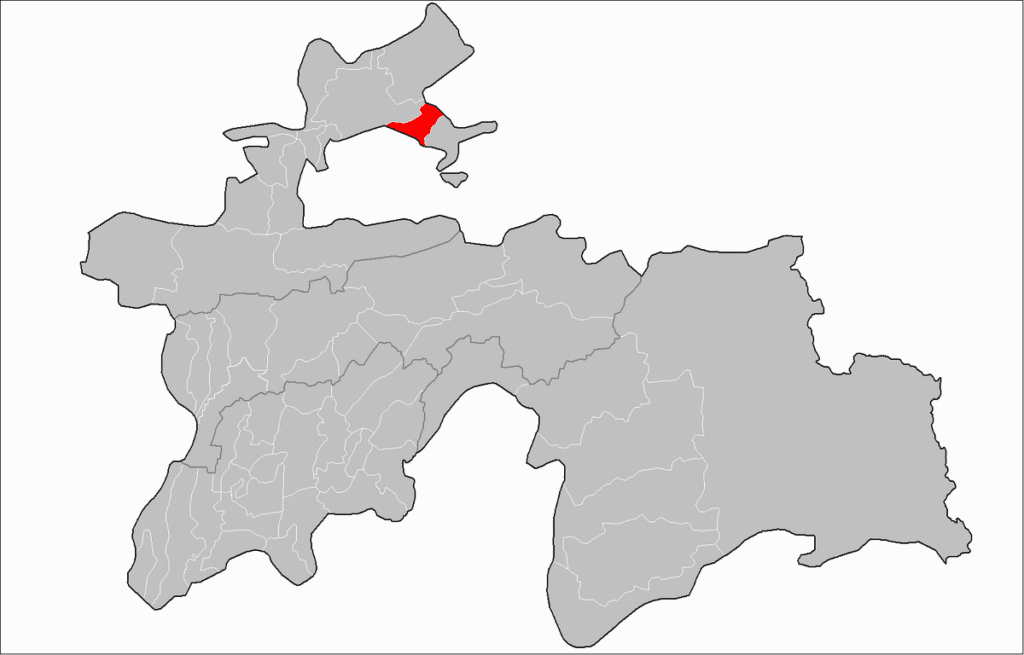Konibodom

Here is a detailed, human-readable article on “weed” (cannabis) in Konibodom (Tajikistan) — its legal context, cultural/social realities, risks, and practical considerations. This is for informational purposes only – not legal advice.
Introduction
Konibodom is a city in the Sughd Region in northern Tajikistan, located in the fertile Fergana Valley, near the border with Uzbekistan. (Wikipedia) It is a relatively small city but part of a region with rural hinterlands, agriculture, border cross-traffic, and historical connections to Central Asian trade and cultivation.
When we talk about “weed” (cannabis) in Konibodom, we are looking at how Tajikistan’s national laws and social context play out in a regional city—how cannabis is regulated, perceived, used (or not used), what risks exist for residents or visitors, and what practicalities matter in such a place.
Legal Framework in Tajikistan
National laws and prohibition
In Tajikistan, cannabis (marijuana / hashish) is illegal for recreational use, medical use, cultivation, sale, or transport. (Leafwell) According to Sensi Seeds on Konibodom:
“It’s illegal to possess or use cannabis in Tajikistan … The country’s Criminal Law states that those ‘involved in using narcotics, “psychotropic substances” or precursors’ can be punished with a prison sentence of up to five years.” (Sensi Seeds)
The law also treats cultivation, trafficking and large-scale supply as very serious offences — with heavy penalties including long prison terms, and in some cases the death penalty for large-scale drug trafficking. (CannaConnection)
For example:
- Small-scale use/possession: prison up to ~5 years (depending on circumstances such as involvement of minors, number of people) in Tajikistan. (Sensi Seeds)
- Trafficking, large scale cultivation or exporting: possibly up to 15–20 years, confiscation of property, or even capital punishment in extreme cases. (Sensi Seeds)
Tajikistan’s legal regime lists cannabis plants (any kind) as drugs/psychotropic substances, including “plant of the sort Cannabis … plant tops of cannabis with flowers or fruits … the separated pitch, crude or cleared, received from plant cannabis” in its national list. (cis-legislation.com)
Enforcement and context
Tajikistan is a major transit country for narcotics, especially from Afghanistan toward Russia and Europe. While much of the attention is on opiates and heroin, cannabis is also part of the illegal-drug environment. (Facts and Details)
Even though the prevalence of cannabis use is relatively lower compared to other drugs in Tajikistan, the legal risk remains high due to strict laws. (Wikipedia)
How This Applies in Konibodom
Local/regional context
Konibodom lies in Sughd Region, in the Fergana Valley, which is an agriculturally intensive area and has been historically connected across borders (with Uzbekistan) and with both rural and urban populations on weed in Konibodom. (Wikipedia)
In such a region:
- Wild cannabis may grow (as in many parts of Central Asia), though wild growth is typically low-THC and not necessarily associated with recreational cannabis markets. (Facts and Details)
- The area’s closeness to borders and transit routes means that supply or movement of illicit substances might be influenced by geography, though the primary national concerns are major narcotics (heroin/opium) rather than cannabis alone.
- Local law enforcement, given the national priority on drug control and transit routes, may be vigilant even in regional centres.

Social/cultural considerations
In Konibodom and similar smaller cities in Tajikistan:
- Cannabis (or hashish) is not a socially open “weed culture” as in places where recreational cannabis is legal; instead, any use is likely clandestine or low-visibility due to legal risk and social stigma on Konibodom.
- Youth, rural migrants, or border-area populations might encounter cannabis use or availability, but their behaviour is influenced by the prevailing legal and social environment which discourages open use on weed in Konibodom.
- Visitors or non-locals in a region like Konibodom may be at increased risk — less understanding of local norms, fewer protections, higher vulnerability if caught in legal trouble on Konibodom.
Supply, use and practical realities
Some data for Tajikistan (nationally) indicate:
- The UNODC and other sources estimate cannabis cultivation in Tajikistan is relatively small (for example, only ~1.24 hectares of illicit cultivation recorded in 2006 across the country) and much of the plant growth is wild rather than commercial on Konibodom. (Facts and Details)
- Cannabis use prevalence in youth was estimated very low – e.g., in 2006 school survey: lifetime use of cannabis 0.8 % of boys and 0.2 % of girls in certain areas. (Facts and Details)
In Konibodom’s case, this suggests that:
- If cannabis supply exists locally, it may be small scale, informal, and higher risk in terms of quality/legality on weed in Konibodom.
- Because wild growth is low-THC and commercial cultivation is very limited nationally, those expecting “strong weed access” may find that supply is patchy or less potent than elsewhere.
- Legal enforcement could be more aggressive or unpredictable in a regional city given border proximity and transit issues.
Risks, Health & Social Implications for Konibodom
Legal risk
- Possession of cannabis or its products in Tajikistan is criminalised—so in Konibodom the user faces risk of arrest, prison, fines. Even small amounts may trigger legal consequences on Konibodom.
- Growing plants, transporting across region or border, or being part of supply networks greatly increases risk, with much harsher penalties.
- Visitors/foreigners in Tajikistan may face additional complications if caught (e.g., less access to legal counsel, visa/residence issues).
Health and user-risk
- Illicit supply means unknown potency, possible adulteration, and limited access to harm-reduction services. In a regional area like Konibodom, health services may be less equipped for substance-use issues.
- Youth or first-time users may underestimate legal risk or health impact; in an environment where cannabis culture is not mainstream, lack of peer education and support increases vulnerability.
- Use of cannabis may co-occur with other risk behaviours (border/transport, driving, mixing substances) which raises health and safety issues.
Social & community risk
- In a smaller city context, the social stigma of drug use is likely stronger; community/family detection is more likely, anonymity lower.
- Border/transport context: Konibodom’s closeness to cross-border traffic means that movement of drugs or suspicion may attract police/controls, increasing risk for users or carriers.
Practical Considerations for Residents & Visitors
For Residents (locals, students, youth)
- Know the law and the local context: Just because you are in a regional city or rural setting does not mean enforcement is lax. Tajikistan’s laws are strict and apply throughout the country.
- Avoid use, cultivation or transport: Given the risk and the uncertain supply conditions, the safest choice is to abstain or not engage in cannabis.
- Be aware of supply risk: In Konibodom, supply likely underground; unknown quality/potency; higher chance of being part of an illicit network knowingly or unknowingly.
- Health and support matters: If you choose to use, recognise the limited local infrastructure for substance-use support in more remote/regional areas; consider mental/physical health impact seriously.
- Community and family relations: In smaller cities local networks are tight; if your behaviour draws attention (smell, guests, paraphernalia) you may face social repercussions.
- Visitors/foreign residents: If you are a visitor staying in Konibodom, you have extra risk: unfamiliar legal system, possible language/cultural barriers, higher consequence if caught.
For Visitors/Travellers
Future Outlook & What Might Change
- As of now, Tajikistan shows no clear signs of moving toward legalising or significantly de-criminalising cannabis. Expert commentary suggests reform is unlikely in the near term. (Sensi Seeds)
- Because Tajikistan is a major drug-transit country, the government’s investment is in strict enforcement rather than tolerance. Thus policy shifts are less likely to favour recreational cannabis soon.
- For Konibodom, any major change would likely come via national law alteration or regional policy shift; until then local behaviour should reflect the current tough legal regime.
Why This Matters for Konibodom
- Community safety & cohesion: Hidden cultivation, supply or recreational use can disrupt local social networks, draw enforcement attention, and risk bringing broader problems into smaller communities.
- Youth & local development: For younger residents and students, misunderstanding cannabis risk or legal consequences may impact education, employment and social mobility in a smaller city context.
- Regional positioning: Konibodom’s location near border and transit routes increases risk of supply networks, enforcement attention—so the context is more complex than a typical small city isolated from transit.
- Health & local services: Because cannabis use is less common/reported than opiates in Tajikistan, local services may be less prepared for cannabis-related issues; users should be aware of this.
Frequently Asked Questions (FAQs)
Q1: Is cannabis legal in Konibodom/Tajikistan?
A: No. Recreational cannabis use, possession, cultivation, sale, or transport is illegal under Tajikistan law and this applies in Konibodom. (CannaConnection)
Q2: Could small use of cannabis be ignored by law-enforcement in Konibodom?
A: While it’s possible that very small use may not always lead to prosecution, the legal risk remains serious; “ignored” is not a guarantee. Expert sources emphasise the strict regime. (Leafwell)
Q3: Are hemp or CBD products legal in Konibodom?
A: No reliable legal regime supports hemp/CBD use in Tajikistan; sources state that even CBD is treated same as cannabis in practice. (Sensi Seeds)
Q4: What if I’m a tourist or foreigner using cannabis in Konibodom?
A: Elevated risk. You should assume zero tolerance, legal consequences, and limited protection. The safest choice: avoid cannabis entirely while in Tajikistan.
Q5: Could growing wild cannabis plants in the surrounding rural area be “safe”?
A: No. Even though wild cannabis growth exists and may have low THC content, cultivation (even small) is illegal and subject to legal penalties. (Facts and Details)
Q6: Is there any sign of policy reform toward cannabis in Tajikistan/Region?
A: Almost none. Commentators note that recreational or medical cannabis reform is not on the government’s agenda in the near term. (Sensi Seeds)
Conclusion
In Konibodom, the issue of “weed” (cannabis) must be viewed through the lens of Tajikistan’s strict national drug laws, the regional context of border/transport realities, the smaller-city social environment and the relatively lower prevalence of cannabis use compared to other drugs.
Key take-aways:
- Cannabis is illegal for all purposes in Tajikistan and in Konibodom.
- Enforcement may vary, but legal and social risks are high—even for small amounts.
- Supply is likely underground, irregular, higher risk; wild growth may exist but does not imply safety or legality.
- For residents, youth, students, and especially visitors in Konibodom, the safest approach is to avoid involvement with cannabis.
- Future reform seems unlikely in the near term, so local behaviour should assume current laws apply.

Message Josh on = joshchris385@gmail.com.
he sorted us in style during our little vacation .
Top quality 420bud of different strains you can find around.
You won’t regret getting in touch with him . Highly recommended local plug his telegram / https://t.me/joshlegitplug
we did give it a try and the delivery guy delay like ten minutes but he finally arrived and woow the buds were so good and thank u so much josh.
His dealings are smooth and fast and his buds are so so good.

We were lucky over here Me and my crew enjoy our trip our deliveries was very safe. we ordered both Satis and Indis It was a great experience and great feeling as we mix them both and have a good time.
I contacted him on his telegram and due to security reasons he requested crypto payments which i did, about 30minutes later my dope was dropped at my requested location great guy!!! i highly recommend.
Woow…thank so much for the buds flowers I purchased 10g (this is minimal order) for $100, everything went smoothly i paid with crypto currency as first timer in the morning and tonight he accepted cash on delivery .
“Absolutely love how easy and seamless the process was! The delivery was quick, and the quality is always top-notch. You’ve earned a loyal customer!”